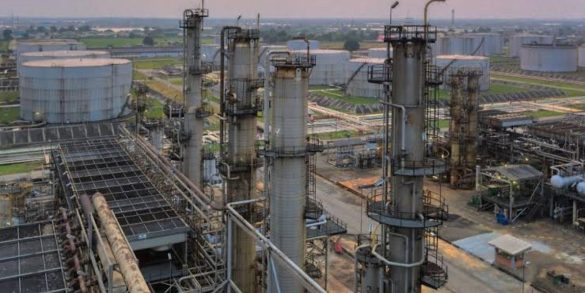KEY POINTS
- Renaissance Capital forecasts Nigeria’s oil production could exceed 2 million bpd by 2026 with stable policy execution.
- The Petroleum Industry Act, rising rig activity, and local ownership are driving renewed investor confidence.
- Infrastructure projects like the Dangote Refinery and gas incentives are set to stabilise Nigeria’s fiscal and forex outlook.
Renaissance Capital has projected that Nigeria could reclaim its long-lost oil production strength, hitting over two million barrels per day (bpd) by 2026 if the government sustains its recent policy momentum.
The investment bank believes the revival could stabilise fiscal revenues, strengthen the naira, and boost investor confidence in Africa’s largest oil producer.
The forecast, contained in a report published this week, attributes the expected growth to the gradual implementation of the Petroleum Industry Act (PIA), renewed capital inflows into upstream projects, and a more balanced partnership between international and indigenous operators.
According to Renaissance Capital, Nigeria’s oil and gas sector is beginning to show signs of sustained recovery following years of production decline, underinvestment, and operational disruptions.
Reforms and Renewed Investment Momentum
Nigeria’s oil output, which peaked at 2.4 million bpd in 2005, has long struggled under the weight of insecurity, theft, and declining investments.
The slide deepened during the COVID-19 pandemic, with production dropping to just 1.14 million bpd in 2022 from 1.74 million bpd in 2019.
But Renaissance Capital says the tide is shifting. Active rig counts a critical barometer of upstream activity have risen from the low 30s in early 2024 to around 40 by September 2025, marking the highest level in years.
The report described this as “a credible signal that the building blocks for growth are being put in place.”
The Petroleum Industry Act, passed in 2021 after two decades of delays, remains the cornerstone of this recovery. It restructured Nigeria’s oil governance architecture, introduced fiscal incentives, and streamlined regulatory agencies.
Analysts at Renaissance Capital said these reforms have reduced bureaucratic bottlenecks and created a more transparent investment landscape.
“The PIA lowers effective tax rates and protects investors from retroactive fiscal changes,” the report noted. “This enhances predictability and boosts Nigeria’s attractiveness relative to its African peers.”



